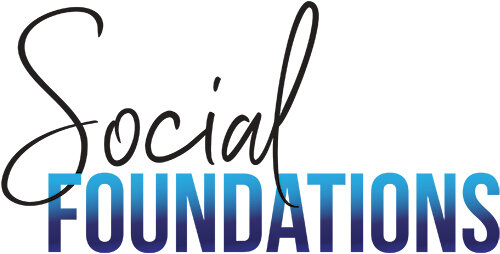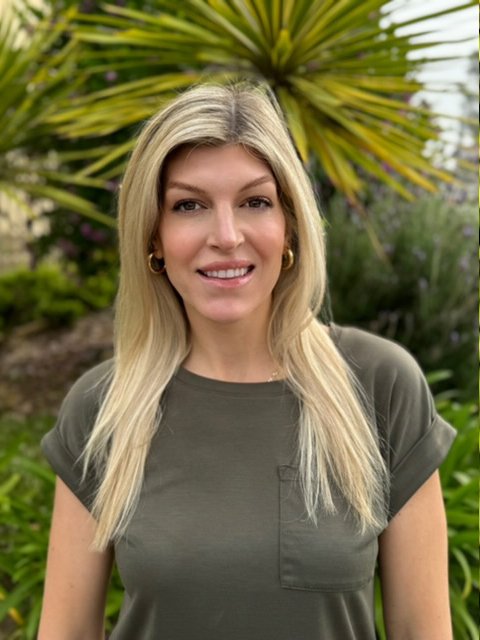
About
Suzanne Tabachnick
Founder and CEO Social Foundations LLC
Suzanne Tabachnick is a social learning specialist and the founder of Social Foundations, a supportive community dedicated to helping individuals develop their social awareness, abilities, and confidence. Suzanne is a married mother of two, and her journey began in 2006 when her older daughter Ava, who was 3 at the time, was diagnosed with Autism Spectrum Disorder. In her search for a specialized social skills program, Suzanne completed both an internship and clinical mentorship program with Michelle Garcia Winner at The Center for Social Thinking in San Jose, California. In the 15 plus years of her practice, Suzanne has been teaching and supporting individuals of all ages with a wide range of social difficulties and diagnoses. There is no greater joy in her life than helping individuals gain the awareness and skills to move confidently through life.
Social Learning Specialists
Soleil Sorensen is a passionate advocate for child development and education. With over 15 years of experience as an ABA therapist and Social Emotional Learning teacher, she has dedicated herself to helping children of all ages succeed socially, emotionally, and academically. Inspired by a child on the Autism Spectrum in a nanny role, she pursued a Bachelor of Arts in Child and Adolescent Development from California State University, Northridge. Her expertise extends to various therapeutic methodologies, including ABA techniques, Social Thinking, The Incredible 5-Point Scale, and The Zones of Regulation. Soleil's approach to working with children is characterized by a blend of patience, creativity, kindness, adaptability, and a fun-loving personality. These qualities enable her to effortlessly connect with children, creating an environment where they feel valued, understood, and empowered to grow. With each day, Soleil reaffirms her commitment to creating a brighter, more inclusive future where every child has the opportunity to thrive!
Soleil Sorensen
Carolina Luna is a passionate Speech Language Pathologist who enjoys working with children of different backgrounds and needs. She was born and raised in South Central Los Angeles and currently resides in Culver City. She graduated from the University of California Davis with a major in Linguistics and earned her Master of Sciences Degree in Communication Disorders from Emerson College. Prior to working as a speech therapist, Carolina gathered extensive Applied Behavior Analysis (ABA) experience working as a behavior therapist for over 6 years. She has worked with children who have Autism, Angelman Syndrome, and many other diagnoses. Carolina has also worked with Social Foundations since 2018 and loves helping children navigate through the strategies and techniques needed to communicate in social situations by utilizing the Social Thinking Curriculum. During her free time, Carolina enjoys relaxing at home with her family and doing Aerial Silks as a hobby. Carolina is a strong believer of inclusivity and advocating for children who cannot advocate for themselves.
Carolina Luna
Rita Lugo Shmuely
Rita Lugo Shmuely is a Behavior Specialist proficient in implementing social and communication strategies that promotes learning in a variety of environments, specializing in working with children with behavioral and developmental challenges. Rita is extensively trained in both the Social Thinking curriculum as well as ABA Therapy techniques. Rita was born and raised in Los Angeles (7th generation Los Angeleno) and graduated from UCLA with a Bachelor’s degree in Anthropology. There, she focused her studies specifically on children’s environments, social interactions, and behaviors from a variety of cultures. Rita has also worked with local LA schools as the Social Emotional Learning Specialist on campus. While also having a passion for travel and culture, Rita works with private clients in different cities, states, and countries as a Social and Behavioral Consultant. She has experience training parents, household staff, nannies, and teachers both remotely and in person. In her free time Rita enjoys gardening, making candles, brunch with friends, and traveling to beach destinations with her husband and 2 doggies.
Valerie Nava
Valerie Nava is driven by a profound passion for creating inclusive environments and empowering children socially and behaviorally. Her journey in special education was greatly influenced by her upbringing. Valerie’s mother worked in special education, instilling a deep understanding of the importance of support and inclusion. Building on this foundation, she graduated from Mount Saint Mary's University with a degree in Psychology. Over the last seven years, she has honed her skills as a dedicated behavior therapist, becoming highly experienced in working with children with behavioral and developmental challenges. From implementing personalized behavior treatment plans and collaborating with educators and families, her commitment to enhancing students' outcomes is unwavering. Additionally, she is extensively trained in Applied Behavior Analysis (ABA) techniques and proficient in utilizing the Social Thinking curriculum. Valerie is very passionate about fostering positive change in the lives of children and their families and advocating for inclusivity.
FAQs
-
Social Foundations has a well-earned reputation for taking care to match students with like-minded peers. Our own experience — as parents and Social Foundations has a well-earned reputation for taking care to match students with like-minded peers. Our own experience — as parents and as professionals — informs our belief that students learn best about satisfying social interaction with peers they are can identify and connect with.We take the time to learn about each student and his or her family before we determine whether we can offer placement in a group. After careful review of each application, if we potentially have a good group to offer, we schedule an intake meeting with each student and family. With staff, we discuss the family’s goals, the student’s learning needs, and potential group placements to determine the best fit. Only then do we offer placement in a social group. as professionals — informs our belief that students learn best about satisfying social interaction with peers they are can identify and connect with.We take the time to learn about each student and his or her family before we determine whether we can offer placement in a group. After careful review of each application, if we potentially have a good group to offer, we schedule an intake meeting with each student and family. With staff, we discuss the family’s goals, the student’s learning needs, and potential group placements to determine the best fit. Only then do we offer placement in a social group.
-
To help a child with social learning challenges grow and flourish, parents need to know when to take a different approach, try out new skills, or shift their thinking in some way. Sometimes our children’s social learning differences mean that they don’t learn social lessons as readily from conventional parenting approaches.Our own experience as mothers of children with significant social challenges has informed our understanding of the vital need for well-informed professional help. We have learned a tremendous amount from the parents we have worked with over the years years about what they really need, and what really helps.
-
Parents meet once a month during their child’s group to develop the skills, vocabulary and approaches that will work best in translating the gains from our group sessions to the outside world.– We are available for additional, short-term consultation with one or both parents to focus on sibling issues, home-based challenges, playdates and other specific needs. About half of the families we work with do some individual work with us at some point.– We offer hands-on, interactive parent workshops to drill down on topics parents need more in-depth practice with.
-
I like the ideas, but exactly how do you teach them?We all continually fine-tune our working understanding of the social world, including the hidden social rules of relationships, and how to read and respond to others in adaptive ways. But our students come to us because they need explicit, clear teaching of the social concepts and strategies necessary for navigating the social world. So we often use visuals like drawings, scales, photos and videos. We also use clear and descriptive but neutral vocabulary from Social Thinking to describe social cognitive skills we are working on.In our groups, all of this social learning — concepts, vocabulary, strategies and tools — is paired with opportunities for practice. Our students do a wide variety of age-appropriate, collaborative, engaging activities that are selected based on group members’ interests and preferences as often as possible. The social learning work our students do with us is challenging! So we will gladly build a cardboard arcade, design fairy costumes, play Risk or chess, build forts, create art, produce a play or do volunteer work. We intentionally model flexibility in the curriculum in order to support our students’ investment in in their own social learning process.





